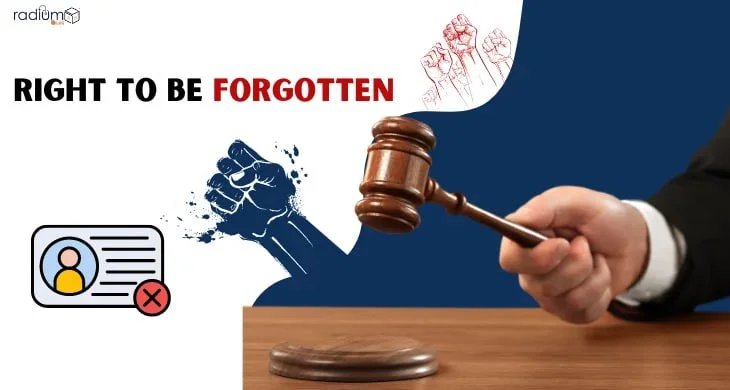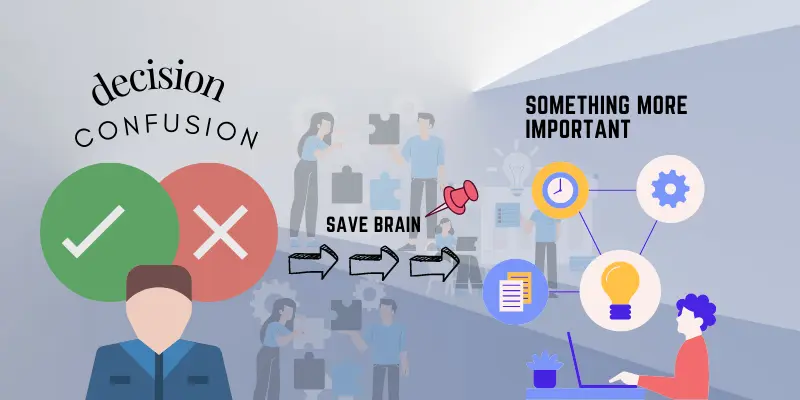The concept of the “Right to be Forgotten” has become a focal point in contemporary discourse, especially concerning privacy rights and the management of online information. This article aims to provide a comprehensive understanding of this right by delving into its various aspects. We will examine its definition, legal foundations, historical evolution, challenges in implementation, notable legal cases that have shaped its interpretation, and how it is perceived on a global scale. Through this exploration, readers will gain insights into the complexities surrounding the Right to be Forgotten and its implications in the digital landscape.
Understanding the Right to be Forgotten
The Right to be Forgotten is a fundamental concept that empowers individuals to exercise control over their personal information in the digital realm. At its core, it grants individuals the authority to request the removal or deletion of specific personal data from online platforms and search engine results. This right is grounded in the principle of privacy and the notion that individuals should have autonomy over the dissemination of their personal data, as well as the ability to manage their online reputation effectively.
In essence, the Right to be Forgotten underscores the importance of privacy and data protection in the modern age, where vast amounts of personal information are stored, shared, and accessed online. By enabling individuals to request the removal of outdated, irrelevant, or inaccurate information about themselves, this right seeks to strike a balance between the freedom of expression and the protection of personal privacy.
The legal basis for the Right to be Forgotten varies across jurisdictions, with some countries enshrining it in privacy laws or data protection regulations. In Europe, for example, the General Data Protection Regulation (GDPR) explicitly recognizes and codifies this right, granting individuals the authority to request the erasure of their personal data under certain circumstances.
However, the implementation of the Right to be Forgotten poses various challenges, particularly regarding the interpretation of relevant laws, the evaluation of removal requests, and the balance of competing interests such as freedom of expression and public interest. Moreover, the global nature of the internet complicates enforcement efforts, as online platforms and search engines operate across multiple jurisdictions with differing legal frameworks and cultural norms.
History and Development
The Right to be Forgotten emerged as a consequential legal concept in response to the challenges posed by the digital age and the widespread dissemination of personal information on the internet. Its origins lie in European Union (EU) law, where it garnered notable attention after a pivotal decision by the Court of Justice of the European Union (CJEU) in the 2014 case of Google Spain v. AEPD and Mario Costeja González.
In this pivotal case, Mario Costeja González, a Spanish national, filed a complaint against Google regarding search results that linked to an old newspaper article detailing his past financial difficulties. Despite the information being outdated, Mr. González argued that its continued visibility on Google’s search results infringed upon his privacy rights and negatively impacted his reputation.
The CJEU’s ruling in favor of Mr. González marked a watershed moment in the evolution of privacy rights in the digital era. The court affirmed the existence of an individual’s right to request the removal of outdated or irrelevant information from search engine results, provided that certain conditions were met.
This landmark decision not only underscored the significance of privacy rights in the digital age but also set a precedent for similar cases globally. It highlighted the need for a balance between the right to privacy and the freedom of expression, sparking discussions and debates on the implications of the Right to be Forgotten for individuals, businesses, and online platforms alike.
Key Principles
The Right to be Forgotten is deeply rooted in the fundamental principles of data protection and privacy rights, serving as a crucial safeguard for individuals in the digital age. At its core, this right underscores the significance of preserving individuals’ privacy and granting them autonomy over their personal information within the vast expanse of the digital sphere.
The Right to be Forgotten empowers individuals to exert control over the dissemination and accessibility of their personal data online. It acknowledges the evolving nature of privacy concerns in an era where information travels instantaneously across digital networks, often without individuals’ consent or awareness.
By recognizing and upholding this right, legal frameworks seek to strike a balance between the legitimate interests of individuals in safeguarding their privacy and the societal benefits of access to information. Moreover, the Right to be Forgotten acknowledges the potential risks posed by the permanence and ubiquity of online information, providing individuals with a mechanism to address outdated, inaccurate, or irrelevant data that may adversely affect their reputation or well-being.
In essence, the Right to be Forgotten embodies the principles of autonomy, dignity, and individual agency in the digital realm, reaffirming the inherent rights of individuals to shape their online identities and protect their personal privacy.
Implementation Challenges
While the Right to be Forgotten has gained legal recognition, its practical implementation presents a myriad of challenges. One such challenge revolves around defining the scope of the right and determining the types of information eligible for removal. Given the subjective nature of what constitutes “irrelevant,” “inadequate,” or “no longer necessary” information, there is often ambiguity surrounding the application of the right.
Furthermore, the Right to be Forgotten must strike a delicate balance between protecting individuals’ privacy rights and upholding freedom of expression. Removing information from public view may conflict with the public’s right to access information and the media’s right to report on matters of public interest. This tension underscores the complexity of adjudicating removal requests and requires careful consideration of competing interests.
Additionally, the practical challenges of enforcing removal requests pose significant hurdles. Search engines and online platforms must navigate diverse legal jurisdictions, each with its own laws and regulations regarding data protection and privacy. Moreover, verifying the authenticity and legitimacy of removal requests presents logistical challenges, as does ensuring compliance with varying legal standards across different regions.
Addressing these challenges requires a nuanced approach that balances individual privacy rights with broader societal interests in transparency, freedom of expression, and access to information. Effective implementation of the Right to be Forgotten necessitates robust legal frameworks, clear guidelines, and collaborative efforts between stakeholders to navigate the complexities of the digital landscape while upholding fundamental rights and values.
Global Perspectives
Although the Right to be Forgotten initially emerged within the European Union, its principles have reverberated globally, leading to the adoption of similar concepts in various jurisdictions. Beyond Europe, countries such as Argentina, Japan, and South Korea have implemented laws or guidelines aimed at regulating the removal of online information upon request.
In Argentina, for instance, the Personal Data Protection Act grants individuals the right to request the deletion, rectification, or blocking of personal data that is inaccurate, incomplete, or outdated. Similarly, Japan’s Act on the Protection of Personal Information includes provisions allowing individuals to request the deletion or suspension of the use of their personal data if it is being handled improperly.
South Korea has also recognized the importance of individuals’ rights to privacy and control over their personal information. The country’s Personal Information Protection Act enables individuals to request the correction, deletion, or suspension of the processing of their personal data by data controllers.
These developments underscore a global trend towards recognizing and safeguarding individuals’ rights in the digital age. As concerns about data privacy and online reputation management continue to grow, more jurisdictions may adopt measures to empower individuals and enhance their control over their personal information online.
Notable Cases
The interpretation and application of the Right to be Forgotten have been significantly influenced by several high-profile cases that have unfolded over the years. These cases have involved a range of scenarios, including disputes between individuals seeking to remove sensitive personal information from online platforms and the platforms themselves.
One notable case is the landmark ruling by the Court of Justice of the European Union (CJEU) in the case of Google Spain v. AEPD and Mario Costeja González in 2014. This case involved Mario Costeja González’s request to have links to outdated and irrelevant information about him removed from Google search results. The CJEU’s decision affirmed individuals’ rights to request the removal of such information under certain circumstances, establishing a legal precedent for the Right to be Forgotten in the European Union.
Additionally, cases involving public figures or individuals in positions of authority have raised complex legal and ethical considerations regarding the balance between privacy rights and freedom of expression. These cases often involve weighing the public interest in accessing information against the individual’s right to privacy and data protection.
Overall, these high-profile cases have played a pivotal role in shaping the interpretation and application of the Right to be Forgotten, influencing legal frameworks, regulatory decisions, and public discourse surrounding online privacy rights and information management.
Criticisms and Controversies
The Right to be Forgotten has encountered criticism from diverse perspectives, with some expressing apprehensions regarding its implications for fundamental principles such as freedom of speech, censorship, and the accessibility of information. Critics contend that the implementation of this right may inadvertently restrict the flow of information and curtail individuals’ ability to access a comprehensive understanding of historical events or public figures.
One of the primary concerns raised by critics is the potential for misuse or abuse of the Right to be Forgotten, which could result in selective censorship and the distortion of historical records. There are apprehensions that powerful individuals or entities may exploit this right to suppress unfavorable information or alter public perceptions by erasing undesirable aspects of their past.
Furthermore, critics argue that the Right to be Forgotten may undermine the public’s right to know and impede journalistic freedom by limiting reporters’ ability to access and report on information deemed relevant to the public interest. This has led to debates about striking a balance between individuals’ privacy rights and the broader societal interest in access to information and transparency.
Overall, the criticism surrounding the Right to be Forgotten underscores the complex ethical and legal considerations involved in balancing privacy rights with freedom of expression and the public’s right to access information.
Right to be Forgotten vs. Freedom of Speech
A central debate concerning the Right to be Forgotten centers on its intersection with the principle of freedom of speech. Privacy advocates contend that individuals should have the right to safeguard their privacy and reputation by requesting the removal of outdated or irrelevant information from online platforms. They argue that this is essential for protecting individuals from unwarranted intrusion into their personal lives and mitigating potential harm caused by the dissemination of inaccurate or outdated information.
On the other hand, free speech advocates express concerns about the potential chilling effect that the Right to be Forgotten may have on freedom of expression and access to information. They argue that granting individuals the authority to request the removal of certain content could lead to censorship and hinder public discourse. Moreover, they emphasize the importance of preserving the public’s right to access information, including historical records and news archives, which may be impacted by the removal of online content.
The debate underscores the delicate balance between individuals’ privacy rights and the broader societal interest in promoting open discourse and the free flow of information. Finding a middle ground that respects both privacy concerns and freedom of speech remains a significant challenge in navigating the complexities of the digital age.
Future Outlook
The evolution of the Right to be Forgotten is ongoing, driven by shifts in technology, legal frameworks, and societal norms. In an increasingly interconnected digital landscape, where vast amounts of personal data are generated and shared daily, the need to safeguard individuals’ privacy rights has become more pressing than ever. However, as digital ecosystems become more complex, there is also a growing recognition of the importance of preserving freedom of expression and access to information.
As new technologies emerge and legal frameworks evolve, the implementation and enforcement of the Right to be Forgotten are subject to continuous refinement and adaptation. Courts and regulatory bodies grapple with nuanced issues surrounding the scope of the right, the criteria for removal requests, and the balancing of competing interests.
Moreover, societal expectations and attitudes towards privacy, transparency, and accountability shape the discourse surrounding the Right to be Forgotten. Public debates, advocacy efforts, and stakeholder engagement play crucial roles in shaping the trajectory of this evolving legal and ethical framework.
Ultimately, achieving a harmonious balance between privacy rights, freedom of expression, and the public interest requires ongoing dialogue, collaboration, and adaptation to the ever-changing digital landscape. As technology continues to advance and societal values evolve, the Right to be Forgotten will remain a dynamic and evolving aspect of privacy law and digital rights.
Conclusion
In conclusion, the Right to be Forgotten represents a significant development in the realm of data protection and privacy rights. While it offers individuals greater control over their online presence, its implementation entails complex legal, ethical, and practical considerations. As discussions around digital privacy and information governance continue, the Right to be Forgotten remains a focal point of debate and deliberation.
FAQs
Que: What does the right to be forgotten mean?
Ans: The right to be forgotten grants individuals the authority to request the removal of personal information from online platforms and search engine results.
Que: How does the right to be forgotten impact individuals?
Ans: The right to be forgotten empowers individuals to manage their online reputation and exercise control over their personal data.
Que: Can anyone request the removal of information under the right to be forgotten?
Ans: In general, individuals can request the removal of information that is outdated, irrelevant, or inaccurate, subject to certain exceptions and limitations.
Que: What are the challenges in implementing the right to be forgotten?
Ans: Challenges include determining the scope of the right, balancing privacy rights with freedom of expression, and ensuring effective enforcement mechanisms.
Que: How does the right to be forgotten affect online platforms and search engines?
Ans: Online platforms and search engines are responsible for processing removal requests and balancing the right to be forgotten with other legal obligations and societal interests.




